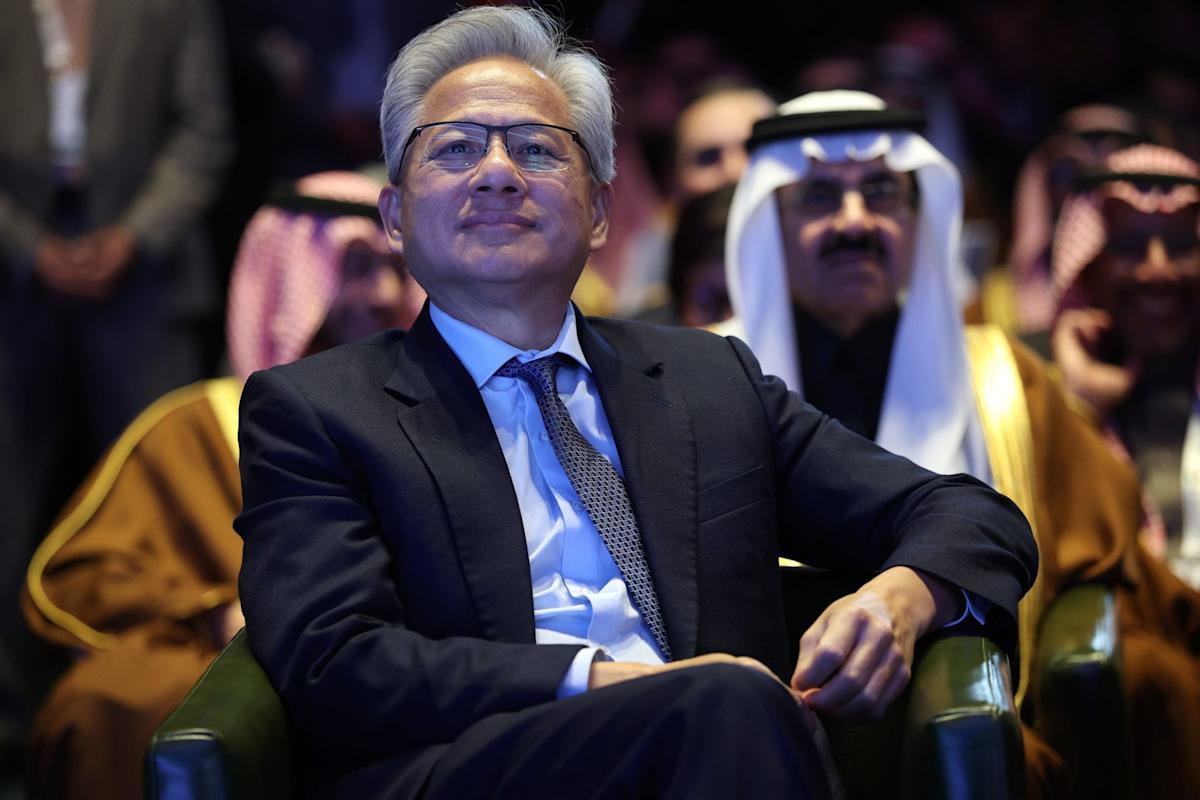Nvidia CEO Jensen Huang earnings call namechecked Saudi AI company Humain three times. Here’s why
On Nvidia’s latest earnings call, CEO Jensen Huang name-checked some of the customers driving the AI chip company’s surging revenues. That included the big three cloud providers—Amazon, Microsoft, and Google—as well as the best-known AI startups, OpenAI, Anthropic and Elon Musk’s xAI. But it also included a lesser-known Saudi Arabian startup, Humain, that got not one but three shout outs in Huang’s comments.
Humain is barely six months old, but it is rapidly becoming a major force in the global build out of AI infrastructure. Founded by Saudi Arabia’s Crown Prince Mohammed bin Salman and backed by the nation’s $1 trillion sovereign wealth fund, the Public Investment Fund, Humain has ambitions to supply 6% of the world’s AI computing power by 2034, which would make it the world’s third largest AI data center provider behind the U.S. and China.
Huang’s mentions of Humain on Nvidia’s earnings call come a day after the CEO attended a state dinner at the White House for the Crown Prince, who is visiting the U.S. for the first time since 2018. Coinciding with the visit, Humain announced a deal with Nvidia and Amazon to put 150,000 of Nvidia’s chips, including some of its state-of-the-art Grace Blackwell 300s, in data centers in a new “AI Zone” being built in the Saudi capital Riyadh.
The company also signed a landmark deal with xAI to build a 500 megawatt data center for the company in Saudi Arabia. Nvidia will supply the chips for that data center too.
“Because of our deep partnership with Elon and xAI, we were able to bring that opportunity to Saudi Arabia, to the KSA, so that Humain could also be hosting opportunity for xAI,” Huang said on the earnings call.
Under the leadership of former Aramco executive Tareq Amin, Humain is aiming to be a “full stack” AI company, controlling not just the data centers on which AI models are run, but also building models itself. It has trained and launched a large language model, called ALAM, that was designed to perform better than competitors at Arabic language tasks, as well as avoiding culturally and politically sensitive topics. It has also launched an AI-native laptop and an AI operating system called Humain One.
But Humain’s biggest impact may be as an AI infrastructure builder, creating data centers that it leases to other cloud hyperscalers or AI companies. Saudi Arabia believes its energy resources—including abundant solar power as well as oil and gas—as well as the ease of permitting and construction in the kingdom, mean that it will be able to serve AI software for 30% less than what similar processing would cost in the U.S. The country also has robust fiber optic connections to other countries.



Leave a Comment
Your email address will not be published. Required fields are marked *